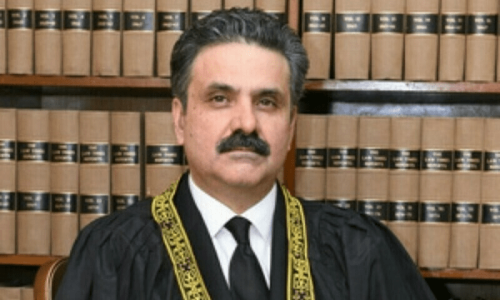TASHKENT, July 31: Uzbek police rounded up suspects in Friday's bombings near the US and Israeli embassies and the state prosecutor's office, Itar-TASS news agency said on Saturday as the death toll rose to three.
It quoted Interior Minister Zakirdzhon Almatov as saying the ministry had identified one of the three suicide bombers who carried out Friday's attacks in Tashkent but declined to reveal the bomber's name or say how many suspects had been arrested.
The three coordinated explosions struck the Central Asian city four days after the authoritarian ex-Soviet state, a U.S. ally in the war on terror, put 15 suspected Al Qaeda followers on trial for bomb attacks in March that killed nearly 50 people.
President Islam Karimov cut short his holiday in Crimea and returned to Uzbekistan late on Friday to head a government commission to investigate the blasts which killed a security guard and a policeman at the Israeli embassy.
The prosecutor's office said another policeman, one of nine people injured in the blasts, died overnight from his wounds.
The blast sites were sealed off by police in bright green uniforms and helmeted soldiers in full combat gear. The embassies showed almost no visible signs of damage.
The number of police on duty was stepped up outside all countries' embassies and at busy crossroads.
Russia, the target of frequent attacks by those opposed to its military action in the breakaway province of Chechnya, condemned those responsible, saying their aim was to destabilise the country and "instil fear and mistrust in the population".
The Foreign Ministry said in a statement the world community should be united in an "uncompromising fight against international terrorism in all its manifestations".
RESENTMENT: Outside the diplomatic quarter and away from the main thoroughfares, life in Tashkent appeared much as normal. In contrast, after the March explosions the city seethed with anger at Karimov's hardline policies and bystanders openly expressed sympathy with those behind the attacks.
"It is weird but this time the explosions did not affect people much," said Vladimir Neradko, owner of a small shop in the centre of Tashkent.
"You see life goes on as before. Maybe because there were few dead, or maybe because people got used to it."
A little-known group, the Islamic Jihad Group in Uzbekistan, claimed responsibility for the attacks, saying they were a protest against injustice and in support of Palestinian, Iraqi and Afghan fighters.
A statement by the group on a Web site linked the attacks to the March explosions, for which it also claimed responsibility, saying "the trial of many brothers ... was being carried out".
Police corruption, extreme poverty and the lack of a legal political opposition have fostered popular resentment and some have embraced a radical brand of Islam.
Uzbekistan's 26 million people are mostly nominally Muslim, although decades of Soviet atheism has made observance patchy.
Five years ago another Islamic group, the Islamic Movement of Uzbekistan, staged a series of bomb attacks in Tashkent which killed 16 and wounded more than 120 people.
Karimov, who has crushed any challenge to his authority since Soviet times, narrowly escaped assassination in one of the 1999 blasts.-Reuters












































Dear visitor, the comments section is undergoing an overhaul and will return soon.